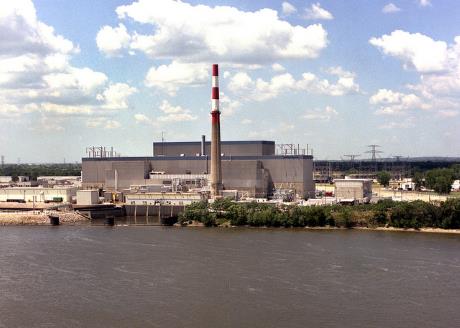Record year for Exelon plants
Exelon's nuclear fleet generated the most power on record in 2017, the company's CEO Christopher Crane said yesterday. The company will start to recognise revenue from Illinois' zero emission credit (ZEC) programme during the first quarter of this year after its Quad Cities and Clinton plants were winning bidders in the state's ZEC procurement.
 |
| Quad Cities (Image: Nuclear Regulatory Commission/Exelon) |
Announcing the company's fourth quarter and full-year results for 2017, Crane said Exelon had a "strong 2017" during which its nuclear generation fleet produced "the most power on record".
Exelon Generation's nuclear fleet, including its owned output from the Salem plant in New Jersey, produced 47,528 gigawatt?EUR'hours (GWh) in the fourth quarter of 2017, compared with 44,834 GWh in the fourth quarter of 2016. Excluding Salem - which is 57%-owned by Public Service Enterprise Group - Exelon?EUR'operated nuclear plants achieved a capacity factor of 95.3% for the fourth quarter of 2017, compared with 94.2 % for the same period of 2016. There were 60 planned refuelling days for the quarter, compared with 71 in the fourth quarter of 2016.
The state of Illinois in late-2016 enacted legislation recognising the contribution of nuclear power generation to the state's zero-carbon emission generation. Exelon said that the Illinois Commerce Commission on 25 January announced that Clinton unit 1 and Quad Cities units 1 and 2 were winning bidders through the Illinois Power Agency's ZEC procurement event, entitling them to compensation for the sale of ZECs.
Exelon Generation executed the ZEC procurement contracts with Illinois utilities with effect from 26 January, and will begin recognising revenue, the company said. In addition to ZEC revenue generated in the first quarter of 2018, the company will also recognise ZEC revenue retroactive to 1 June 2017, it said.
The company announced on 2 February that it will shut the Oyster Creek nuclear power plant in New Jersey at the end of its current operating cycle in October. The company had previously agreed with the state to shut the single-reactor plant by the end of 2019, but decided to bring the closure forward after consideration of factors including economics and operating efficiencies, and to avoid a refuelling outage scheduled for the autumn of 2018 which would have required advanced purchasing of fuel fabrication and materials beginning in late February. As a result of the decision, Exelon Generation will recognise one?EUR'time charges during the first quarter of 2018 ranging from an estimated $25 million to $35 million related to a materials and supplies inventory reserve adjustment, employee?EUR'related costs, and construction work?EUR'in?EUR'progress impairment, among other items, the company said.
Researched and writtenby World Nuclear News